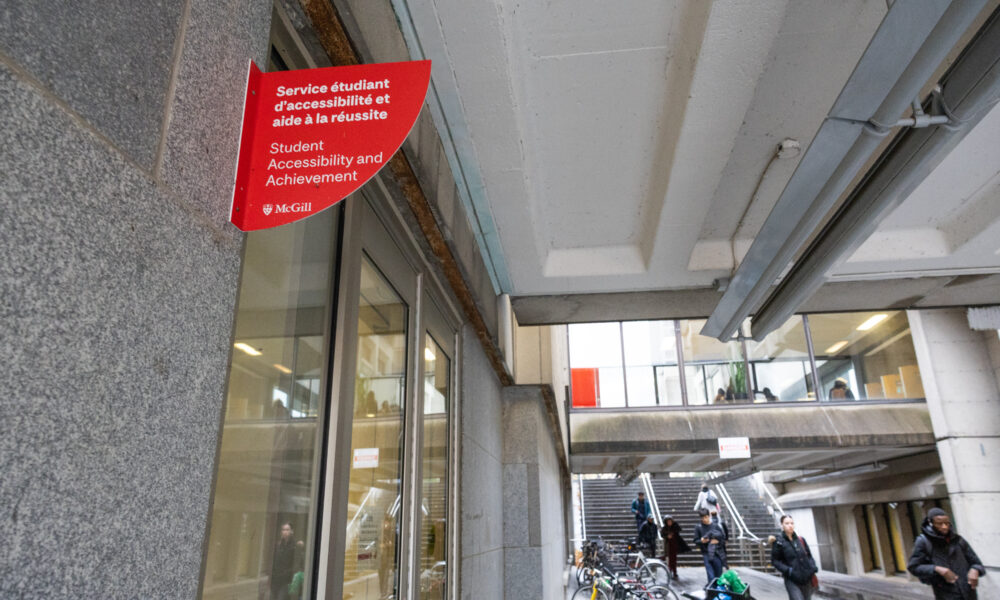McGill students have reported unprofessional treatment from the staff at the McGill Student Accessibility and Achievement (SAA) Centre. SAA, as part of McGill’s Student Services, provides students experiencing learning challenges with a sanctioned area to take exams specific to their individual needs. Registered students with documented disabilities may take their final exams in the SAA centre and receive extra time. The SAA also provides services and amenities such as text enlargement in computer labs, earmuffs, and standing desks. However, many students have recently alleged that their SAA needs have not been properly met.
In a written statement to The Tribune, a student who wished to remain anonymous explained that they noticed a rise in unprofessionalism this year, describing a lack of empathy from SAA invigilators during a recent exam.
“I have been asked by invigilators in the past to start [my exam] without all of my accommodations being present,” they wrote. “My support person should not be more knowledgeable on the invigilation process than the invigilators themselves, and yet this is the case for every [SAA] exam. My support person has to follow up and ensure that my rights are being respected each time when my accommodations are not set up before I can begin.”
The student also recounted invigilators using mobile devices loudly in the SAA exam room, creating a distracting environment for themselves and other students.
“I have had invigilators who played games on their phone with the volume on and […] speak the entire time loudly outside the door of my room, despite knowing that many students, including myself, are sound sensitive,” they reported.
This student’s experience is not an isolated instance. Another student shared about SAA neglecting their accommodation in a written statement to The Tribune.
“The invigilator stopped me from completing my evaluation a minute early […] by continually speaking to me, telling me to hurry up and leave,” the student wrote. “This even went on till after the minute was up. I tried to fill in my student ID on the Scantron portion as it was the only thing I forgot […] and they got mad at me for that, even though it’s a short-digit code [….] This [experience] has made [the SAA seem] very unpleasant and dreadful.”
Both students described these situations as having a significant impact on their exam performance.
“Not being able to focus due to the invigilator [resulted] in lower-than-expected marks that are not my normal marks,” the first student wrote. “I have issues with refocusing once distracted and struggle significantly with focus and migraines due to noise.”
They also highlighted that their peers, who were also entitled to accommodations, had faced scrutiny from the SAA, describing how the SAA discounted their chronic condition diagnoses on file.
“An SAA accessibility advisor has told friends that they should return to their education when they are healthy,” they noted.
The first student affirmed that such an array of unprofessional behaviour has left students with accommodations, like themselves, feeling uncomfortable in testing environments.
Both students called for change. The first described the professionalism they would expect from the SAA staff, and hope to see in the future.
“Invigilators should have bias training and sensitivity training on the experiences of a wide range of disabled students, so that they have a strong understanding of what is appropriate to say and what is not,” they emphasized. “Invigilators should be aware that their job is to set up all accommodations listed, not to choose which ones they think may or may not be necessary for that assessment.”
The Tribune did not receive a response to a request for a statement from the SAA, nor McGill’s Media Relations Office, in time for publication.
In a written statement to The Tribune, Dymetri Taylor, President of the Students’ Society of McGill University, provided students with an alternate way to report unprofessional behaviour from the SAA.
“While we aren’t involved in the accommodations themselves, we do relay feedback we receive to both SAA and to the Deputy Provost [or] Student Services Director,” he wrote. “We’re always looking for further information to avoid […] issues that may arise due to […] unprofessionalism [….] Concerns can be relayed to @ua.ssmu.ca.”









